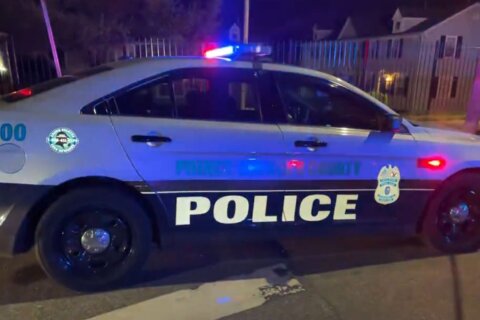What happens when your homeowners association ignores its own rules? In Prince George’s County, the answer is: Nothing.
You can try to take it to court and watch the fees you pay get used against you while you also pay for your own lawyer; but beyond that, residents have had no recourse, until now.
In a 9-0 vote, the Prince George’s County Council approved a new law that will require HOAs to participate in a hearing with the Commission on Common Ownership Communities, an agency that’s supposed to have jurisdiction over HOAs. However, even when they were violating their own bylaws, the HOAs could choose to ignore any hearings with the commission.
When the new law takes effect — and because of funding that will take longer than usual — that will change and the commission’s ruling will be binding.
The bill was sponsored by District 6 Council member Wala Blegay. She said her office fields several complaints about HOAs every month. She stressed that the bill only applies to situations when an HOA is in clear violation of its own governing rules.
“Many of my residents have had conflicts, and they have gone to the Attorney General’s office, to their congressman’s office, to lawyers, spending money when we should have a process,” Blegay said during a public hearing on the bill last Tuesday.
She pushed for the legislation after hearing from many frustrated residents in the Kettering area. More also showed up to the public hearing to sound off on their frustrations with their HOAs.
“We have a board of directors that do not understand protocol and will not follow it,” said resident Ernestine Matthews. “They do not read the bylaws. If you give them the bylaws, they just push them aside.”
“They hire unethical attorneys to fight for them with our funds, and our bylaws state that we should have a special meeting before any legal actions are taken,” she added. “But they don’t care. We have these people, who we don’t even know, that are supposed to be working in our best interest, but are not.”
Several other speakers made similar claims.
“We now are absolutely distraught over the blatant disrespect, continuous conflict, unprofessionalism, and unneighborly interaction created by the current HOA leadership and management company,” said Audrey Chase. “Actions have become the modus operandi against residents who merely exercise their right to freedom of speech and their right to disagree.”
Those who are members of HOAs pointed out instances in which neighbors who were in the wrong can be just as indifferent as the targets of the bill, and wondered how that would impact things.
“Can they enforce this homeowner who violates the bylaws to correct this violation?” asked Maurice Jefferson. “To this arbitrator, will there be an enforcement of them to act? That’s my concern, because we’ve had previous situations where a homeowner will decide to take it to the courts and they have lost in court. That’s the only way they’re going to do something. And my concern is, whether or not, once they go through this process, will they be convinced that they have to do something?”
Of course, passing the bill is one thing, but funding it might be a different story. It’s estimated that it would cost the county more than $1 million to implement the law, mostly through the hiring of new employees that would be needed. But doing that would eat up about 20% of the Office of Community Relations’ budget.
The earliest the law could be implemented is July 1 of 2025, when the 2026 fiscal year begins and the county can work to find the funding. But county leaders have long warned that next year’s budget gap looks bigger than any other they have dealt with in recent years.
Get breaking news and daily headlines delivered to your email inbox by signing up here.
© 2024 WTOP. All Rights Reserved. This website is not intended for users located within the European Economic Area.








